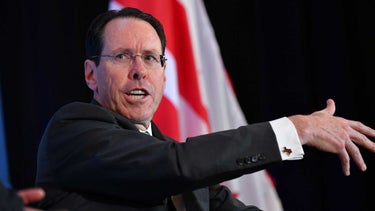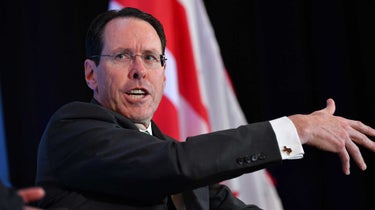Hayden Springer, who came to Bermuda at No. 125 in the FedEx Cup, shot a 6-under 65 for a share of the lead at the Butterfield Bermuda Championship.
What the PGA Tour regrets ‘deeply’ about PIF agreement rollout

In an op-ed published Monday, a PGA Tour official offered ‘regret’ about how the Tour messaged its surprising deal with LIV Golf’s backers.
The post What the PGA Tour regrets ‘deeply’ about PIF agreement rollout appeared first on Golf.
In an op-ed published Monday, a PGA Tour official offered ‘regret’ about how the Tour messaged its surprising deal with LIV Golf’s backers.
The post What the PGA Tour regrets ‘deeply’ about PIF agreement rollout appeared first on Golf.
When on June 6 the PGA Tour and Saudi Arabia’s Public Investment Fund — which backs LIV Golf — announced some details of their proposed partnership, shock and confusion reigned in the golf world and beyond. Among the many concerns and panicky leaps to conclusion: Were the Saudis taking over men’s professional golf? Would PIF governor Yasir Al-Rumayyan become Tour commissioner Jay Monahan’s boss? Would LIV dissolve? Or would the LIV model come to the PGA Tour? And, perhaps above all, why such an extreme about-face from the Tour, which for months had been entangled in a bitter feud — legal and otherwise — with LIV’s power brokers?
To golf fans, Tour watchdogs, even the players themselves, there were far more questions about the secretive deal than answers.
And the Tour knew it.
That much came to light Monday by way of Ron Price, the Tour’s chief operating officer, who in an op-ed published by The Athletic, wrote:
“Due to the confidential nature of negotiations surrounding the framework agreement, much of the initial reaction has been negative, colored by misinformation or misunderstanding. That’s something we take full ownership of and deeply regret. Moving forward, we firmly believe that the more the facts are discussed and understood, the further our constituents can support a potential definitive agreement — if reached — and look forward to the positive and lasting impact on all levels of our game.”
The op-ed also lays out why Price believes the pact, should it be approved, will result in a “highly favorable outcome for the PGA Tour,” and presumably serves as a preview of the testimony Price and Tour policy board member Jimmy Dunne — who Monahan has credited with brokering the proposed deal with Al-Rumayyan — will present on Tuesday on Capitol Hill, where they are both scheduled to field questions from the U.S. Senate Permanent Subcommittee on Investigations that is probing the Tour-PIF accord.
Monahan, who is recovering from an undisclosed health condition, will not be in attendance, nor will Al-Rumayyan or LIV CEO Greg Norman, both of whom cited scheduling conflicts.
Leading the hearing will be Sen. Richard Blumenthal (D-Conn.), the subcommittee’s chairman, and Sen. Ron Johnson (R-Wis.), the subcommittee’s ranking member. As Blumenthal detailed in a June 21 letter to Monahan, the intent of the session is to “examine the planned agreement … the future of the PIF-funded LIV Golf, the risks associated with a foreign government’s investment in American cultural institutions, and the implications of this planned agreement on professional golf in the United States going forward.”
Toothy questions all.
Added Johnson, in a statement, “I hope that this hearing and any other role that Congress plays in this matter will be constructive.”
Last week, in an interview with the Milwaukee Journal Sentinel, Johnson said that when it comes to antitrust concerns that have been raised around the proposed deal, he believes the courts won’t stand in the way and instead are likely to rule “in favor of sports competition.” Johnson said his primary concern is with maintaining the “purity of the competition” on the PGA Tour.
Price and Dunne will face inquiries across a spectrum of topics on Tuesday. But they’ll most assuredly also come armed with their own agenda. On the top of that list, if Price’s op-ed is any indication: tightening up the messaging around the specifics of the agreement — i.e., not only what it is but also just as importantly what it isn’t.
“This is not a merger,” Price wrote in the op-ed. “The PGA Tour remains intact. The subsidiary — PGA Tour Enterprises — will include PIF as a non-controlling, minority investor, as they are in many other American businesses.”
That bit of nuance will take some time to shake from the media’s lexicon, if reporters and editors acknowledge it at all. A quick search Monday of reporting on the deal showed the word merger still in use by a variety of outlets, from CNN and NBC News to Fortune and The Hill.
Price continued: “PGA Tour Enterprises will be led by a board of directors. The majority of that board will be appointed by the PGA Tour and that entity will be run by a CEO. That CEO will be PGA Tour Commissioner Jay Monahan. The PGA Tour’s controlling interest on that board of directors will remain constant going forward, regardless of the size of the PIF’s initial or any future incremental investments. The board of directors will also have the ability to decline any unwanted investment.
“For two years, the question has been, who would lead professional golf forward? The answer provided by this work toward a definitive agreement is now clear: the PGA Tour.”
Clarity is something for which golf fans and players alike have been yearning. We’re not there yet. But perhaps Tuesday’s proceedings will get us one step closer.
The post What the PGA Tour regrets ‘deeply’ about PIF agreement rollout appeared first on Golf.


